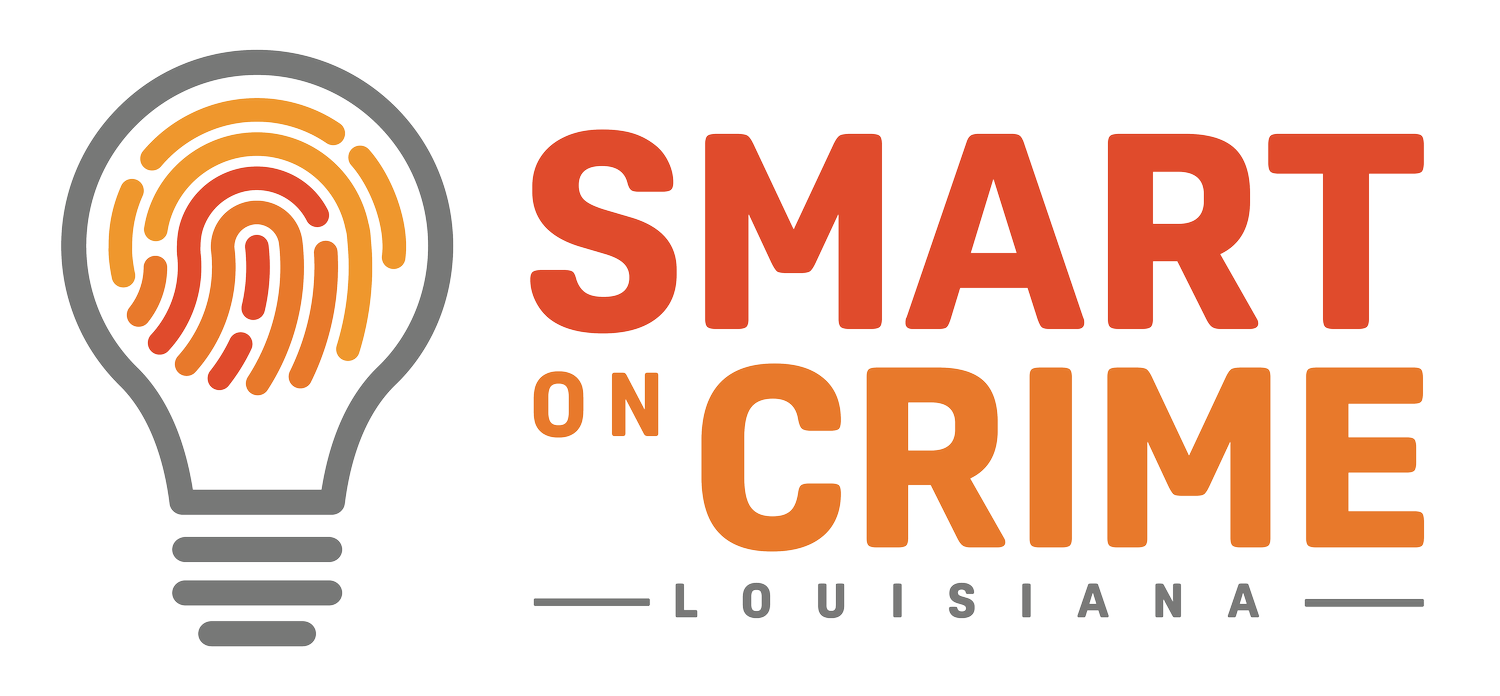OUR AGENDA
We all want safer neighborhoods and stronger communities.
Getting public safety policy right starts with researching, creating, and advocating for policies that will increase public safety, reduce crime and recidivism, and deploy scarce taxpayer resources toward proven, experience-based solutions. To that end, the Smart on Crime Louisiana agenda includes the following initiatives:

Louisiana implemented a historic set of criminal justice reforms to reign in the state’s inefficient public spending for programs that reduce violent crime. The Justice Reinvestment Initiative is already producing cost savings, but a lack of oversight is putting the primary goal of reducing recidivism at risk. We need to increase transparency to ensure cost savings are reinvested in programs that continue to reduce violent crime and recidivism.
Reform court funding and address burdensome fines and fees
Improve Re-Entry Programs
Recidivism reduction strategies and re-entry services are a key component of criminal justice reform. Smart on Crime Louisiana understands that reducing barriers to work is key to helping ex-offenders reintegrate into society as productive citizens. We seek to reduce barriers to work and watch dog taxpayer sponsored entry programs for effectiveness.
Put Re-entering Citizens Back to Work
The very best way to safeguard against recidivism and a revolving door to our jails and prisons is to work hard to ensure every returning citizen can get work and re-join communities. That’s why re-entry programs are so important and that’s why recent reforms to the state’s occupational licensure laws are critical. Anything we can do to provide access for incarcerated individuals to skills training and remove barriers for them to get work is proven to reduce instances of recidivism.
Our state’s employers should welcome the formerly incarcerated, especially as they deal with record labor shortages. Louisiana has enacted protections for employers that hire justice involved individuals to protect employers by limiting liability. This policy is working to expand employment opportunities for Louisianans.
Similarly, a broad coalition fought for and won the implementation of “Certificate of Employability” provisions in state statutes to expand protection for employers and bolster employment for those supervised by a re-entry court, increasing their chances of a success.
A policy to limit liability for mentors used by specialty courts in Louisiana would ensure mentors are able to volunteer and serve our communities by guiding and coaching those probationers supervised by the re-entry courts. This, in conjunction with employment, could help to increase the likelihood of stable employment and continued crime-free behavior.
Re-entry court programs coordinate judges, district attorneys, other system stakeholders, and the staff at the Louisiana State Penitentiary, in order to increase rehabilitative opportunities and employment of those re-entering society. This program is open to nonviolent justice involved individuals serving a term of incarceration of ten years or less. Programming within the re-entry court includes substance abuse treatment, behavioral therapies, and vocational education at LSP, along with stringent post-release supervision and requirements. Supporting these programs is key to making sure the formerly incarcerated are ready to transition into productive crime free lives.
Increase accountability and transparency for reform implementation
Good policy is meaningless if it’s not implemented well, and ensuring high levels of accountability and transparency is necessary to achieve that. Currently, Louisiana’s public safety and criminal justice operations lack transparency, utilize decades-old systems that can’t adequately serve today’s data needs, and have too little oversight. Change is needed. Twenty-first century tools are needed to succeed in calculating sentences, streamlining data collection and distribution, and providing transparency to the operations of our corrections work. Further, the legislature has made necessary and important changes to how we deliver re-entry services to the incarcerated and prepare the formerly incarcerated to get work and come back to our communities, but these reforms lack proper oversight and accountability to our state’s leaders and taxpayers. The public should know how grants are used, what results new reforms and programs are achieving, and where there’s still room for improvement.
A Chance at a Clean Slate
Current law allows Louisianans to seal certain records of nonviolent and lower-level misdemeanors and felonies if ten years have elapsed and the person remains crime-free. This policy should be expanded to additional Louisianans who have earned a chance at a fresh start. Those who have been deemed factually innocent and entitled to compensation should be able to wipe their slates clean. This could help thousands more turn their lives around. Importantly, this fresh start would only be allowed for those who have remained crime-free and employed for 5-10 years. However, changes are needed to ensure better access to these services, such as removing burdesomes fees and streamlining the process.

